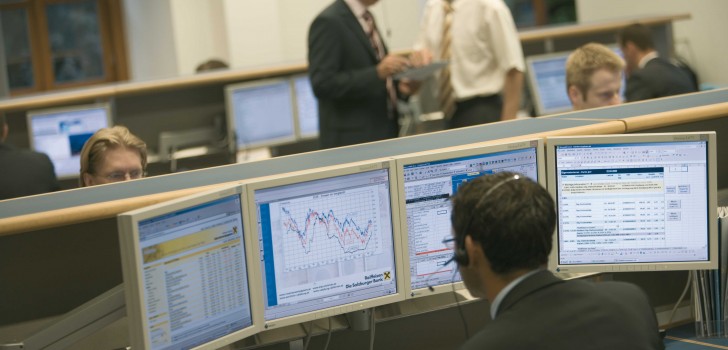China’s stock markets are being hit once again by traders from foreign hedge funds. Despite efforts to calm Chinese markets, foreign investors are reported to have found loopholes that allow hedge funds and proprietary traders to be heavily active in Chinese stocks without going through the proper formalities.
“With current market volatility and weak retail investor sentiment, these hedge fund strategies would naturally lead them to sell the market … which is against the government’s intention of propping up the market,” China market analyst, Oliver Barron, said in Beijing.
Both the Shanghai and Shenzhen markets have dropped roughly 30 percent since reaching their peak in June. This decline has triggered close eyes to be held on known “malicious” selling tactics and a crackdown on trading practices reportedly used by outsider hedge funds like high frequency trading firm Citadel, which was recently banned from trading in the country.
Any healthy stock market is formed partly by hedge funds as well as proprietary traders. But because China lacks the ability to stabilize their ‘buy-and-hold’ investors, analysts are reporting the negative impact of hedge funds on formal, tightly controlled channels put in place to structuralize the system.
Chief executive Eric Neo, of Neo & Partners Global, is a helping hand in getting firms set up in China and other global markets. In his eyes, firms are simply registered commodity trading or consulting firms using profits to play the game. Commodities, like metals, are the most common way for trading firms to play the Chinese markets without registration.
The conception of foreign hedge fund investment is complicating regulative efforts to trace the sale of a securites not owned by the seller, commonly known as short-selling.
“With these structures, once you’ve generated your profits you can do what you like with them,” said an executive who aided the setup of a U.S. trading firm in China. “There are more than a 120 million trading accounts in Shanghai alone. No one can regulate that many accounts and know what’s going on.”
Without alleging any illegality, nearly 40 trading accounts have been frozen by China’s markets ‘watchdog’ for “trading irregularities” since the markets started to fall.
With a honest ear, Citadel Securities, a section of the U.S. group that owns hedge fund Citadel LLC, reported itself this week as being connected to one of the accounts frozen. Despite getting caught in the crackdown, Citadel claimed it met all rules and regulations of the local law though the company has a history of using technological wizardry to conduct highly questionable trading strategies – some of which effectively front run legitimate investors all while being technically in compliance with regulations.
With domestic account holders being the only names released, The China Securities Regulatory Commission (CSRC) chose not to comment as they are being watched closely by concerned foreign hedge funds who fear new investment rules may make it harder for their firms to operate.
As the chinese market remains to be highly unpredictably, many Chinese investors are reported to be supporting the hedge funds by investing their cash with foreign firms instead of nationally, as a faster way to make money.
Electronic trading firm Virtu Financial Inc., which has posted suspiciously perfect trading records, recently announced a partnership with an anonymous chinese brokerage in hopes to expand into stocks in the region. According to sources, other companies including various high-speed big names like IMC, Optiver, and U.S. founded hedge funds like Pine River, and Och-Ziff are also in China, bulldozing the market regulations.
Despite no accusations of wrongdoing, neither D.E. Shaw or Eclipse could be reached for comment when asked about their international ‘investments’. In short, it appears that the inreasingly watchful eye of U.S. regulators and market participants is leading shady electronic trading firms to the less regulated yet equally large markets of Asia.
Stay Connected